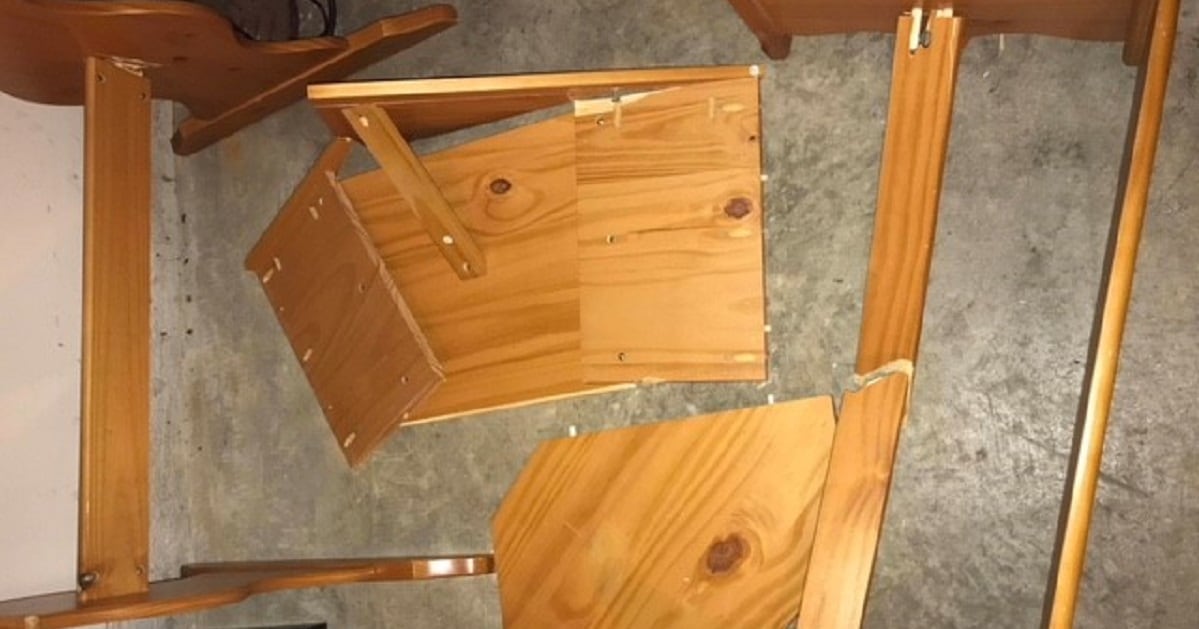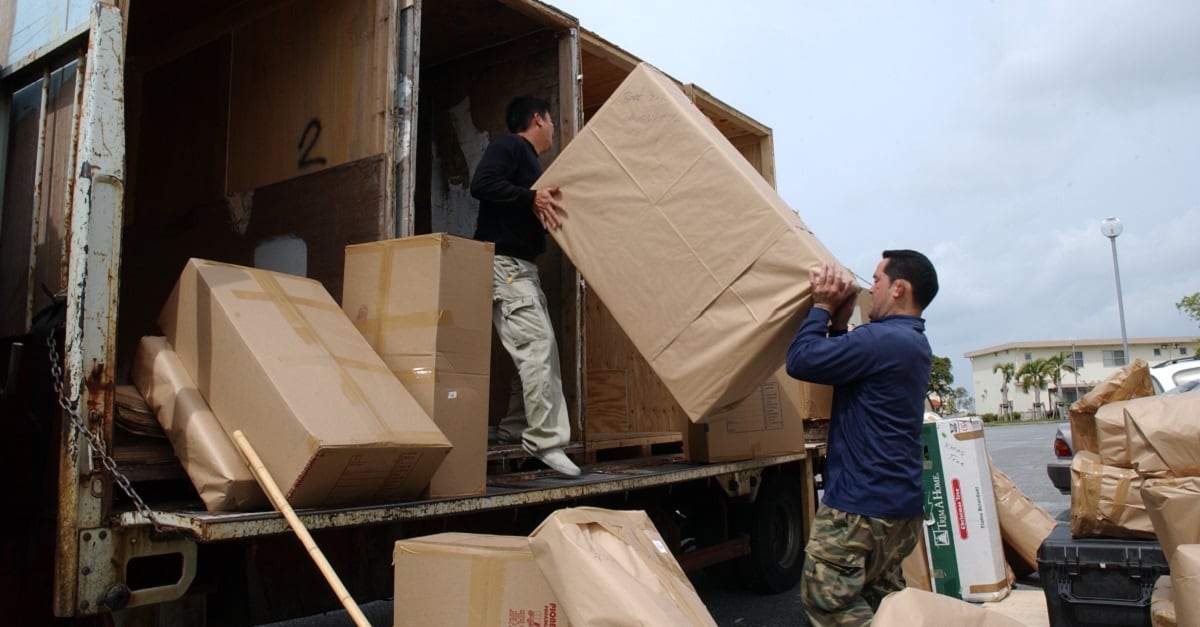In the wake of increasing problems with service members' household goods shipments, U.S. Transportation Command officials are moving toward privatizing the entire process within two years.
While this is a longer-term possible solution to fix problems with the physical process of moving, officials are also putting some initiatives into place for this year’s summer peak season. And the Army is looking at the bigger issue of the frequency of permanent change of station (PCS) moves, which affect a variety of quality of life issues such as spouse employment and children’s education.
“I want to slow the turmoil, reduce PCS moves,” said Army Secretary Mark Esper, during a town hall meeting at the Association of the United States Army on Tuesday. One initiative the Army has underway is moving to standardize all continental U.S. tours and most overseas tours to 36 months, he said.
There has been increasing pressure on defense officials to improve household goods moves for military families, and to hold moving companies accountable, especially after last year, when a number of families complained about late deliveries and damaged household belongings. Esper and other senior leaders heard complaints at an AUSA forum last fall, and in other visits.
Officials at TRANSCOM have been considering a number of ideas and suggestions to improve the process, and are now in the initial stages of gathering input and moving toward total privatization, said Army Col. Ralph Lounsbrough, personal property division chief in TRANSCOM’s strategy, capabilities, policy and logistics directorate. TRANSCOM is the executive agency for military household goods moves.
“There would be one move manager that would be responsible for coordinating all the industry,” he said in a separate interview. In turn, TRANSCOM would manage the contract, similar to the current process for managing the shipment of service members’ privately owned vehicles.
Officials hope to have that move manager in place and make the transition to a privatized system by the beginning of the peak summer season in 2021, Lounsbrough said.
“We think it would help with accountability and transparency, and ultimately we’re trying to make things better for the service members,” he said. After seeing the results from a request for information to industry, Lounsbrough said, “We know there are companies out there that have the ability to do that.”
“We think it’s time to let industry manage the industry piece,” he said. Defense Department household goods moves make up about 20 percent of the household goods market domestically, Lounsbrough said, but the current process awards that business one move at a time. About 40 percent of military moves are made in the summer, and in 2017 there were 430,000 moves. “So we have 900 companies, one move at a time.”
He said officials believe there a “massive efficiencies” that could be gained.
It could also be a benefit to the agents who own the trucks, employ the packers and loaders, as more money could pass through to them to reinvest in more capacity to help move military personnel, he said.
RELATED

Officials have been seeking to bring on more moving companies to ease the issues of lack of capacity. Last year’s problems were exacerbated by ever-growing shortages of truck drivers, and workers to do the jobs such as packing and loading, for a variety of reasons including an improving economy that opened up jobs elsewhere.
Among other steps being taken this year:
- TRANSCOM will post moving companies’ customer satisfaction scores online. “The aim is to give families, those who are moving, a lot more transparency with regard to the scores of companies that may be moving your household goods,” Esper said.
- The service branches are increasing the quality assurance inspections of companies to hold them accountable. The Army will now conduct quality assurance inspections for 50 percent of the moves, at the point of packing, and the point of delivery, said Army Maj. Gen. John P. Sullivan, assistant deputy chief of staff, G-4, up from the previous 25 percent of moves inspected.
- Across DoD, movers will also crate more household goods for moves within the continental U.S., Sullivan said, noting that a lot of damage and loss occurs when shipments are put into storage. The wooden crates are normally used to encase household goods going overseas.
- In May, TRANSCOM will stand up a 24/7 hotline for anyone across DoD who is having issues with their household goods move. Part of the frustration for service members and families last year was difficulty in getting problems solved. Because the process is so segmented, people had to call multiple parties, Sullivan said.
Army wives Megan Harless and Tarah Nypaver said they have been providing suggestions and input to TRANSCOM as part of an advisory group in efforts to improve the process for military families. Both will be moving this summer.
In general, there’s a lack of resources such as quality assurance inspectors, said Harless. They’ve suggested that service officials could consider hiring and training military spouses as seasonal quality assurance inspectors. But there are currently problems with how long the hiring process would take, she said.
“At a minimum, we need more quality assurance inspectors,” said Nypaver, noting that it’s not clear how many inspectors will be hired.
“It would give great peace of mind to families to know that when they’re starting to have issues with their packers, with their movers and they can’t come to a resolution, to know they can get on the phone with somebody,” who can resolve the problem, Harless said.
Since the plan for privatization doesn’t roll out until 2021, Harless said, “we’ve still got two years of moves that will happen ... So we have to focus on what are the things that we can do that will help families in those two years.
“Crating some shipments gives peace of mind to some families, but it doesn’t help everyone.”
“It may be piecemeal, where some issues can help some families and some can help others, but as long as we’re in the aggregate helping more people, that’s great,” Nypaver said.
Karen has covered military families, quality of life and consumer issues for Military Times for more than 30 years, and is co-author of a chapter on media coverage of military families in the book "A Battle Plan for Supporting Military Families." She previously worked for newspapers in Guam, Norfolk, Jacksonville, Fla., and Athens, Ga.





